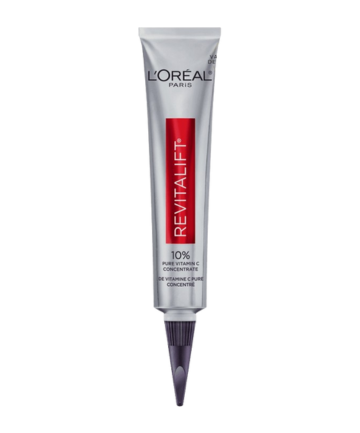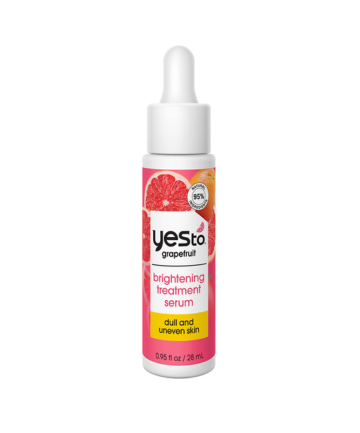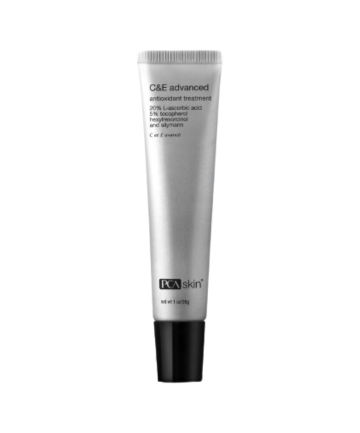In the ever-evolving world of skincare, there's a dazzling potion that's got everyone talking: the radiant, the rejuvenating, the superhero of serums, vitamin C serums! Picture this: a little bottle packed with a powerhouse of goodness, waiting to work its magic and grant your skin the love and care it truly deserves. So, what's the buzz all about? It's not just a trend; it's a love story between your skin and a skincare superstar. Think of it as a burst of sunshine bottled up, ready to transform your skin and bring out its most luminous and vibrant potential. From tackling blemishes to bidding farewell to those pesky signs of aging, vitamin C serums for skin is the uplifting anthem in your skincare symphony, infusing joy, and radiance into your daily routine.
Image via svetikd/Getty
Image via svetikd/Getty
Vitamin C serum and vitamin C cream are both popular choices for skincare, each offering its unique benefits and properties. When it comes to determining which one is better for your skin, the choice largely depends on your skin type, concerns, and personal preferences.
Vitamin C serum is a lightweight, fast-absorbing liquid that typically contains a higher concentration of pure vitamin C, making it an excellent choice for addressing various skincare issues. It is known for its ability to brighten the skin, fade dark spots, and promote collagen production, which can help reduce the appearance of fine lines and wrinkles. Serums are ideal for those who want a potent dose of vitamin C without the heaviness of a cream. They are typically suited for all skin types, especially for those with oily or combination skin.
On the other hand, vitamin C cream is a moisturizing product that combines Vitamin C with other hydrating and nourishing ingredients. It provides a more emollient texture, making it suitable for individuals with dry or sensitive skin. While the concentration of Vitamin C in creams may be slightly lower compared to serums, they still offer benefits such as antioxidant protection and skin brightening. Creams are particularly beneficial for those looking to hydrate and nourish their skin while benefiting from the effects of vitamin C.
Ultimately, the choice between a vitamin C serum and a vitamin C cream depends on your skin's specific needs and your skincare routine. Some individuals even opt for both, using a serum for its targeted treatment benefits and a cream for added hydration and moisture. It's essential to experiment and find the product that works best for you, keeping in mind your skin type and desired results.
Image via Alexandr Dubynin/Getty
Vitamin C serum is a lightweight, fast-absorbing liquid that typically contains a higher concentration of pure vitamin C, making it an excellent choice for addressing various skincare issues. It is known for its ability to brighten the skin, fade dark spots, and promote collagen production, which can help reduce the appearance of fine lines and wrinkles. Serums are ideal for those who want a potent dose of vitamin C without the heaviness of a cream. They are typically suited for all skin types, especially for those with oily or combination skin.
On the other hand, vitamin C cream is a moisturizing product that combines Vitamin C with other hydrating and nourishing ingredients. It provides a more emollient texture, making it suitable for individuals with dry or sensitive skin. While the concentration of Vitamin C in creams may be slightly lower compared to serums, they still offer benefits such as antioxidant protection and skin brightening. Creams are particularly beneficial for those looking to hydrate and nourish their skin while benefiting from the effects of vitamin C.
Ultimately, the choice between a vitamin C serum and a vitamin C cream depends on your skin's specific needs and your skincare routine. Some individuals even opt for both, using a serum for its targeted treatment benefits and a cream for added hydration and moisture. It's essential to experiment and find the product that works best for you, keeping in mind your skin type and desired results.
Image via Alexandr Dubynin/Getty
Get it
Get it
Get it









